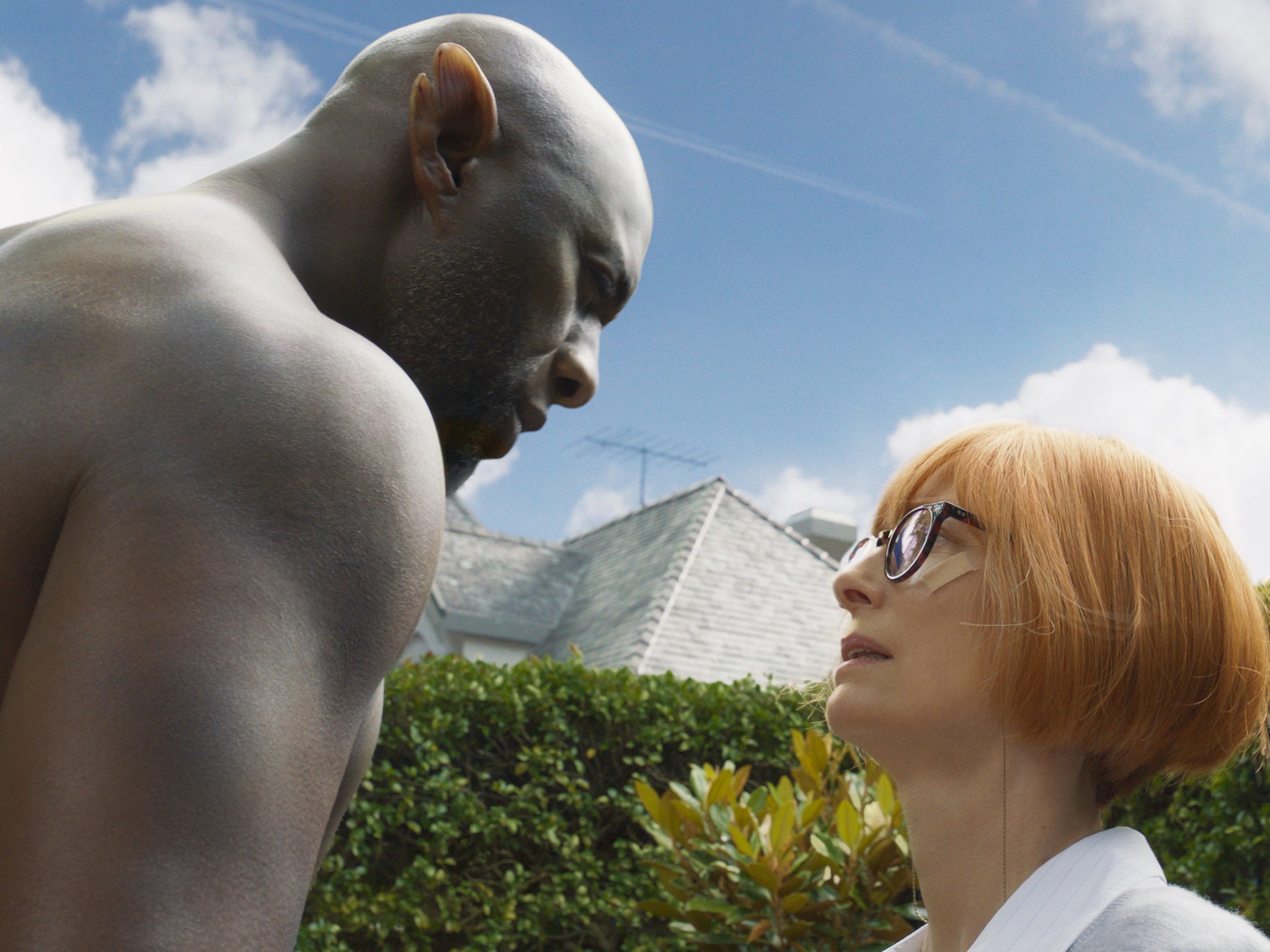Three Thousand Years of Longing review: Idris Elba and Tilda Swinton lack chemistry in creaky sci-fi slog
George Miller’s ‘Mad Max: Fury Road’ follow-up sags where it should speed and narrows when it should expand
Dir: George Miller. Starring: Idris Elba, Tilda Swinton, Alyla Browne, Aamito Lagum, Burcu Gölgedar, Matteo Bocelli, Kaan Guldur, Jack Braddy. 15, 108 minutes.
When Mad Max: Fury Road was released in 2015, it wasn’t merely a revelation – it was a revolution. In an era rife with mind-numbing franchise work, George Miller delivered a feature-length, dystopian car chase that slammed its foot on the pedal and never relented, all while unspooling a rich fable about women’s emancipation from under the boot of environmental collapse. The film found itself at the centre of many a fevered discussion about what cinema can look like at its most creatively liberated and immersive. Though Miller’s follow-up, Three Thousand Years of Longing, is an entirely different breed of film – a romantic fantasy about a djinn and the woman he’s magically bound to – its interest in the restorative power of storytelling follows in the same tradition.
What’s surprising is that, though Miller’s imagination remains entirely untarnished, Three Thousand Years of Longing stands in defiance of all of Fury Road’s sagest lessons. The film sags where it should speed; it mumbles when it should pronounce; it narrows when it should expand. Its plot concerns Alithea Binnie (Tilda Swinton), a narratologist “living off the exercise of her scholarly mind”, as her own narration describes it. She’s set aside marriage and family in order to dedicate her life to the stories that have shaped our world. Her chief concern lies with the death of the creation myth, now replaced by scientific theory, stripped of its magic, and demoted to the level of mere metaphor or comic-book commercialisation (see: Thor, a Norse god now better known as a Marvel superhero played by Chris Hemsworth).
But there’s one thing that transcends all material and theoretical explanation: love. While at a conference in Istanbul, Alithea buys an antique bottle as a souvenir trinket, only to accidentally release the Djinn (Idris Elba) who resides inside. He offers her the customary three wishes, the usual rules intact (no asking for world peace, sorry). Alithea insists that she’s perfectly content and that her heart is in want of nothing. He tries to convince her otherwise by offering three stories from his own past – rich in feminine desire and terrible loss.
We hear of the Queen of Sheba (Aamito Lagum), wooed by Solomon (Nicolas Mouawad); the servant girl Gulten (Ece Yüksel), who lusts after a handsome Ottoman prince (Matteo Bocelli); and a 19th-century bride, Zefir (Burcu Gölgedar), whose genius mind offers her a way out of suffocating circumstances. Miller’s film offers a loose adaptation of AS Byatt’s 1994 novella The Djinn in the Nightingale’s Eye – and, like Byatt’s writing, these fairytales largely concern the promises and dangers that stem from attempting to control one’s own predestined narrative. Are stories of magic and mystery really a way to remind us that there’s no escaping the bindings of fate?
But the way Miller maps out these ideas feels frustratingly scattershot. Fury Road’s editor, Margaret Sixel, and its cinematographer, John Seale, return with a few of the same hazy, hallucinogenic flourishes, but little of the same propulsion. A magical stringed instrument that comes with its own strumming fingers and crooning head, or a soldier whose head crumbles off and grows insectoid legs, are enticing concepts in isolation. But they’re somewhat lost within the wider tapestry of creaky, old Orientalist tropes; the Middle East is exoticised, littered in the Westernised silhouettes of costumes and Elba’s vague but heavily intoned accent. The film seems to draw its influence from fantasies of 19th-century European painters more than anything else. There’s an unpleasant undertone, too, in one section that concerns a concubine named Sugar Lump, which builds to nothing but a cheap bit of fatphobia.
Miller, who co-wrote the script with his daughter Augusta Gore, seems most invested in the love story between Alithea and the Djinn. Both are lonely. Alithia understands, in her own way, what it must be like to be bottled away, unseen and unheard, for thousands of years. But still, Gore and Miller can never satisfactorily square up the uneven power balance at work between a magical being and the person he’s essentially trapped in servitude to (and that’s before even considering the racial dynamics at play here). Neither, it would seem, can Elba and Swinton. Despite being such dependably charismatic performers, the actors feel oddly placid in their respective roles. There’s an almost inexplicable lack of chemistry between the two.

While the ultimate lesson of Three Thousand Years of Longing does, to some degree, concern ideas of ownership over both love and fairytales, it never feels concrete enough in its conclusions to paper over the film’s glaring problems. It’s the total opposite of Fury Road, in a way – a film that hurtles towards an undecided location and doesn’t even take the direct route there.
‘Three Thousand Years of Longing’ is in cinemas from 2 September
Join our commenting forum
Join thought-provoking conversations, follow other Independent readers and see their replies
Comments


Bookmark popover
Removed from bookmarks